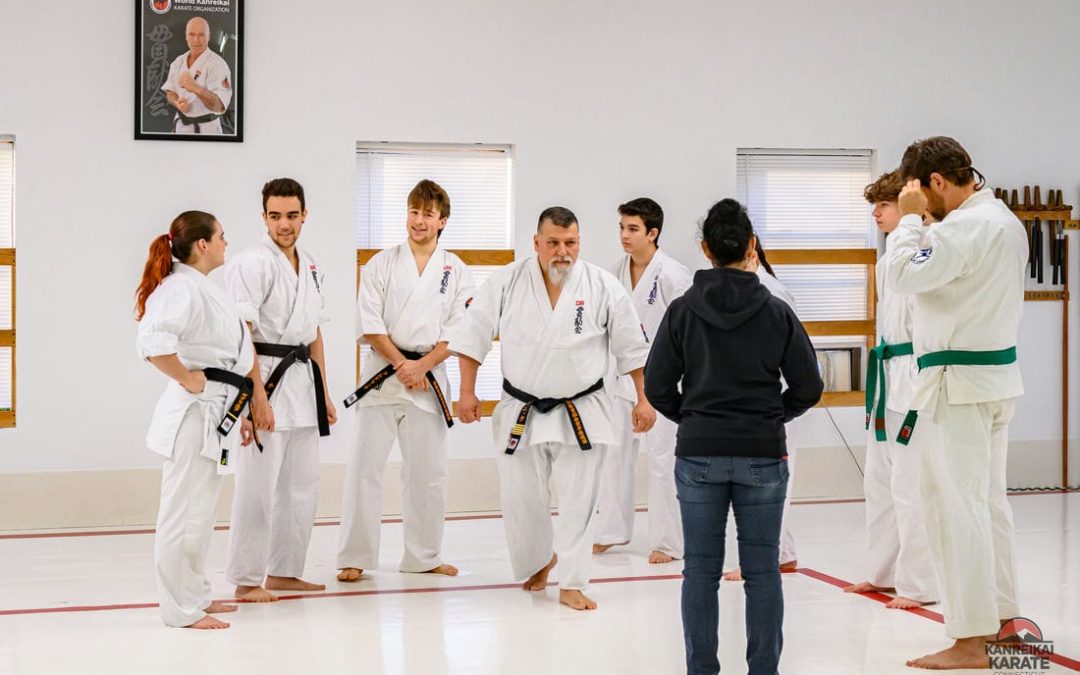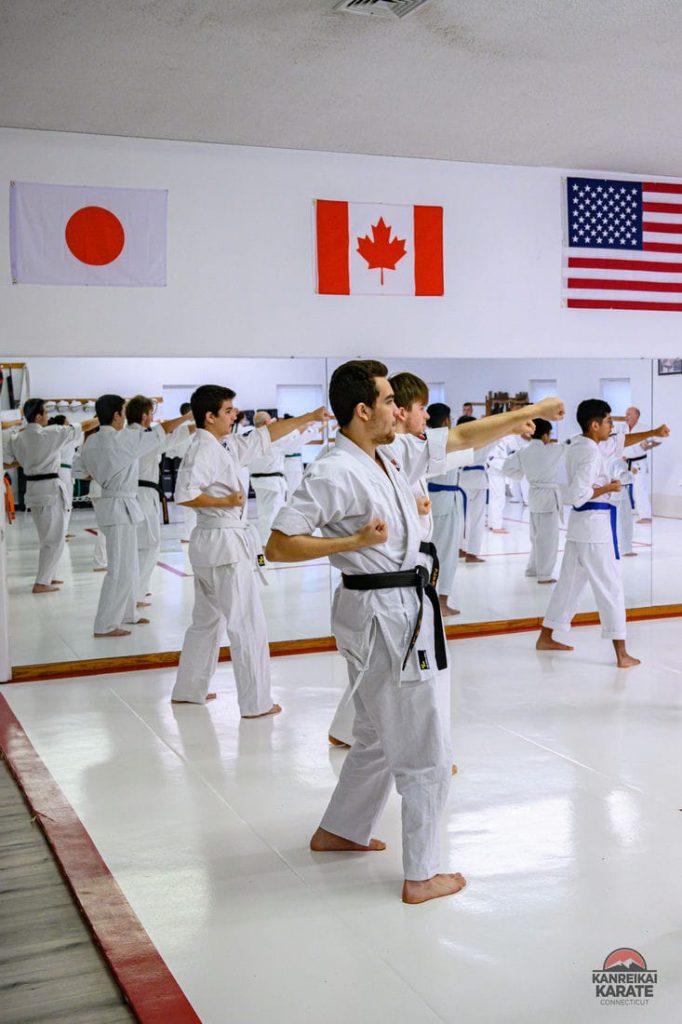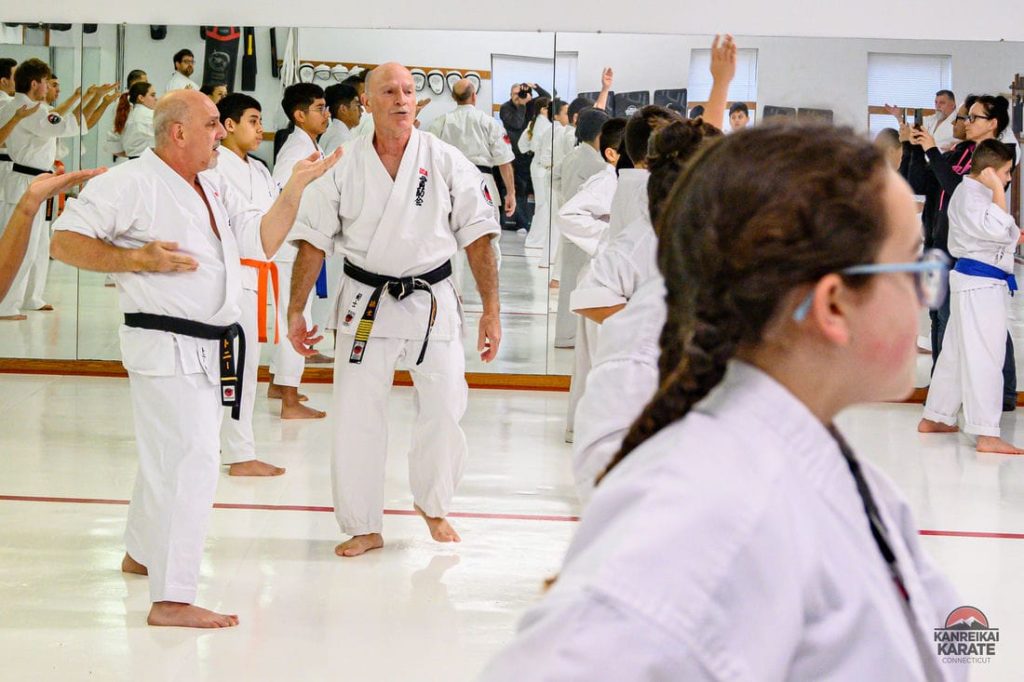In the world of martial arts, a black belt signifies years of intense training, discipline, and mastery of techniques. But with the rise of “McDojos” and profit-driven schools, the coveted black belt rank is being handed out far too easily. This phenomenon dilutes the value of a black belt and goes against the core principles of Karate.
As Karate practitioners, how can we address unearned black belt promotions and preserve the integrity of this iconic symbol? This comprehensive guide dives into the roots of the issue, signs of questionable promotions, and ways the Karate community can enact positive change.
What Does a Black Belt Truly Represent?
A Karate black belt is more than just a piece of decorated cloth wrapped around the waist. It represents:
- Dedication – Earning a black belt typically takes 4-5 years of consistent, intense training to master the basics. Students must commit to regular practice, often multiple times per week.
- Discipline – Karate teaches both physical discipline through rigorous training and mental discipline to stay focused on continuous improvement. Black belts embody this lifelong discipline.
- Humility – True mastery comes from humility and the drive for ongoing learning. Black belts remain students even after earning the rank.
- Competence – Most importantly, a black belt signifies technical competence. Recipients must demonstrate proficiency across all aspects of Karate to earn promotion.
So, while the black belt often represents a teacher or authority figure, legitimate black belts consider themselves perpetual students of Karate on the never-ending path toward self-improvement.
The Gradual Journey Through Ranks and Belts
Traditional Karate uses a colored belt system called kyu and dan to designate ranks. This provides structure and incentive to keep progressing:
Kyu Ranks:
- 10th to 6th Kyu – White and colored belts for beginner to intermediate students. Focuses on stances, basic strikes/blocks, kumite, and memorization of katas.
- 5th to 1st Kyu – Brown belts for advanced students. Introduces more complex katas, combinations, and more intense sparring.
Dan Ranks:
- 1st to 3rd Dan – Black belt ranks. Indicates technical mastery of all basics and advanced techniques. Requires higher understanding to transition into an instructor.
- 4th Dan and beyond – Higher-level black belts for expert instructor status. Represents decades of experience.
- Most students will spend around 4-5 years progressing through kyu ranks before testing for Senpai (1st degree black belt, senior student). Legitimate dojos have structured testing/promotion criteria to ensure students are truly ready for each successive rank. Here is an example of what to look for: https://www.danburykarateschool.com/karate-martial-arts-school/ranking-system/
The Rise of McDojos and Questionable Promotions
So where do questionable black belt promotions originate? Enter the McDojo.
What is a McDojo?
A McDojo is a martial arts school driven by profit over values. They often promise quick black belt promotions to attract more students. Signs of a McDojo include:
- Guaranteeing black belt promotions within 1-2 years (or less)
- Giving black belts to young children (under 13)
- Focusing on belt promotions over skill competency
- High-pressure sales tactics and contracts
- Lack of accredited instructors
- “Pay to test” policies for each new belt, which in other words, means to pay for your belt without proper requirements or test to earn new ranking.
McDojos make it easy to buy your way to a black belt without putting in the hard work and hours of training. This undermines what a black belt stands for.
Why Skill and Merit Should Determine Belts
Earning a black belt requires dedication, discipline, and humility. But the most critical requirement is technical competence. A black belt signifies the ability to perform and apply all fundamentals of Karate with proficiency.
Unearned black belts awarded by McDojos put undeserving students directly in an instructor role. This can be dangerous and irresponsible if these students lack the proper depth of knowledge.
From child black belts to fast-track programs, these practices harm the reputation of Karate. They suggest achieving a black belt requires no serious commitment or ability.
The Karate community must come together to uphold strict standards around evaluations and testing. This will preserve the value of black belt ranks for decades to come.
How Can Karate Groups and Dojos Enact Change?
Reversing the trend of unearned black belts requires effort from all corners of the Karate world. Here are steps various stakeholders can take to preserve integrity:
- Karate Associations or Organizations – Enforce requirements and guidelines for tests. Make sure all black belt tests are run and supervised by the Grandmaster and high-ranking teachers within the organization.
- Dojos – Adopt merit-based, standardized testing criteria; sanction/revoke members not upholding values.
- Instructors – Lead by example; focus on quality instruction over profit motives or belt quotas.
- Students – Scrutinize schools carefully; ask questions about the teachers, who taught them and why they should study at that dojo; value lifelong learning over rank prestige.
8 Signs of a Questionable Black Belt Promotion
Not sure if a dojo awards belts fairly? Watch for these red flags:
- Guaranteed black belt in 1-2 years or less.
- Black belts are awarded to children under 13.
- Focus on profit over teaching true Karate values.
- “Pay to test” policies for belt promotions.
- Limited requirements/testing for new belts
- High-pressure sales tactics and rigid contracts
- Lack of accredited instructors
- Sparring is not required to earn each belt.
- Guidelines and specific criteria for belt promotions, here is a link to a well defined belt requirement example: https://www.danburykarateschool.com/karate-martial-arts-school/ranking-system/
- Grandmaster does not supervisor the black belt test.
Seeing one or more signs should prompt further investigation into the school’s legitimacy.
Key Takeaways
- A Karate black belt signifies years of intense training, discipline, and mastery – not just an achievement.
- Unearned black belts dilute the value and meaning of this iconic rank.
- McDojos prioritize profit and hand out belts without proper testing.
- True mastery requires technical competence, not just time spent in training.
- The Karate community must unite to enforce stringent promotion standards based on merit.
- Students should scrutinize instructors and be aware of illegitimate promotions.
- With effort from all stakeholders, we can restore value to the black belt for future generations.
Choosing a Legitimate Dojo
When researching dojos, look for schools accredited under well-respected Karate organizations. Prioritize ones that have trained students for decades and follow traditional Japanese ranking and testing procedures. Beware of schools that seem to focus more on profit than teaching authentic Karate values and technique. The right dojo will build your skills steadily over many years on the lifelong path of improvement.
Ready to Join Us on the Mat? Sign Up for Our 1 Week Free Trial!
Are you eager to start your karate journey? There’s no better time than now! We’re excited to offer a special 1 week free trial for new students. Here’s what you can expect:
- A welcoming and supportive environment for all ages and skill levels
- Expert instruction from experienced, certified karate instructors
- A safe, clean, and well-equipped training facility
- A variety of class times to fit your busy schedule
- A fun and engaging curriculum that builds strength, discipline, and confidence
Don’t miss this opportunity to try karate risk-free for a full week. You’ll get a taste of the exciting world of martial arts and see firsthand how karate can benefit you or your child.
Signing up is easy! Simply click the URL below to get started. We can’t wait to welcome you to our dojo and help you begin your transformative karate journey.
Let’s get you started on the path to personal growth, physical fitness, and lifelong friendships. Join our karate community today!
Frequently Asked Questions
Q: How long should it take to earn a black belt in Karate?
A: The typical timespan is 4-5 years for dedicated students with consistent training. Promotions under 2 years are highly questionable.
Q: What is the youngest age a child can realistically earn a black belt?
A: 13-15 years old is the minimum age for a legitimate junior black belt. Promoting children under 10 is highly unethical. Full black belt test is required at the age of 18 if junior black belt was awarded.
Q: Can you buy a legitimate black belt certificate online?
A: No, that would be completely unethical and fraudulent. Real black belts cannot be purchased – only earned.
Q: Should I avoid dojos that award child black belts?
A: Absolutely. Promoting kids under 13 to black belt means the school follows unscrupulous practices.
Q: How can I find a dojo that upholds Karate values and standards?
A: Vet instructors thoroughly, read reviews, visit training sessions, and look for signs of a McDojo before joining. Reputable schools focus on quality instruction and merit-based testing. Guidelines for testing should be clearly defined.
Q: What should I do if my dojo awards black belts too easily?
A: Consider finding a more credible dojo.
Q: If I earned a questionable black belt, should I stop wearing it?
A: That’s a personal decision. But consider speaking with your instructor or testing your abilities at another reputable dojo to confirm your skills match your rank.
Q: How can Karate associations or organizations better monitor black belt promotions?
A: Karate associations or organizations should have guidelines and criteria for each rank. If this is not clearly defined that signals a red flag. Black belt tests should always be supervised by the Grand Master.
Q: What is the best way to raise awareness about illegitimate black belt promotions?
A: Unfortunately, there is no governing body that monitors karate. One of the main reasons is there are many karate organizations with different styles and teachings. Individuals will have to decide on who they choose to follow.
Authors:




